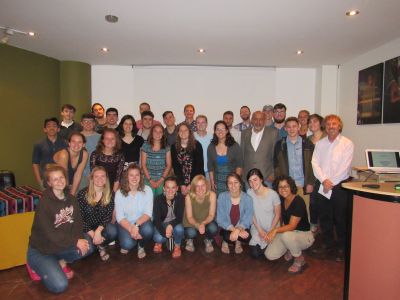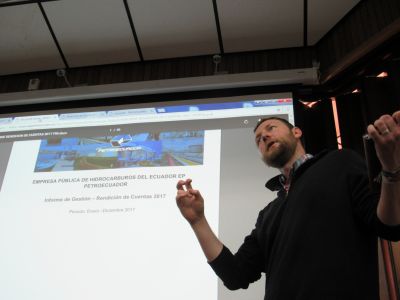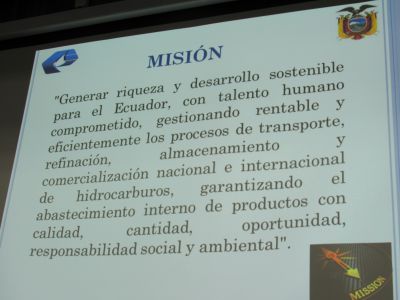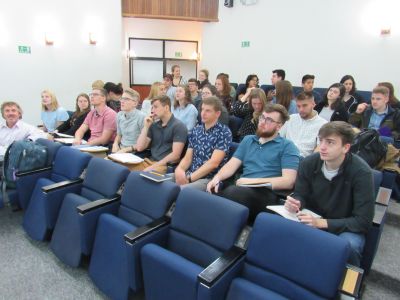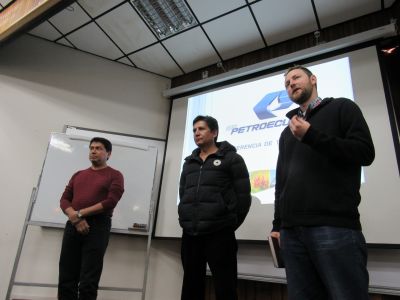On Thursday morning the class had the opportunity to have a meeting with several representatives of the state oil company, Empresa Pública (public business) Petro Ecuador. Despite some sage words of warning from our instructor, I felt fully prepared and was confident I knew what to expect from the meeting. As a student at Goshen College I am very committed to the ideals of conservation and sustainability. Of course, please momentarily disregard that I just took a 4,000-mile ride in an airplane, and if everyone lived my lifestyle it would require the resources of seven earths (it’s the thought that counts, right?).
The meeting that followed can only be described as an experience akin to eating tofu. One moment you’re ready to sink your teeth into what appears to be a nice slab of perfectly grilled chicken, only to discover seconds later that you’re eating a plant masquerading as a meat. Leaving you one very confused consumer. One moment I was ready to questions the moral compos of these employees for supporting an industry so destructive and exploitative, but the next I was having some second thoughts myself.
EP- Petro Ecuador operates as an autonomous business free to make its own decisions regarding company policy and direction. As a nationalized company however, any profit generated must be turned over to the state. EP-PE is a multibillion dollar company ($9.6 billion) that is responsible for 30% of Ecuador’s yearly budget ($32 billion). In this way EP-PE and the oil industry are indirectly responsible for improvements in infrastructure, building new schools, and universal health care, though at the environmental cost stemming from spills and extraction. The benefits of this industry cannot be diminished. EP-PE also claimed that they always channel some of the profits of the oil back to the community from where the oil was extracted, though we learned later that the commitment to this reinvestment was dubious, as was their commitment to receiving consent from the indigenous peoples of the Amazon before commencing drilling.
Therein lies quite a sticky wicket, to use one of my favorite cricket metaphors. While I enjoy attempting to embarrass my parents by alluding to erotic literature on a public forum, the oil industry company is not a black-or-while issue — it really is fifty shades of gray. The indigenous peoples, on whose territory oil is often extracted are indeed marginalized as a minority group, experiencing a lack of access to health care and poorer economic opportunities. For many Ecuadorians, however, oil is a strong public benefit and to the removal of nearly 1/3 of the national budges would be a death knell for the country as a whole. Without stating the obvious, this is a complex issue, one that raises difficult questions. Whose wellbeing is more valuable? Is this a “greater good” scenario? Perhaps most difficult to reconcile is the realization that providing a better quality of life for all people in the next decades will come at the expense of an earth that can continue to support all of us.
By Evan Beck





